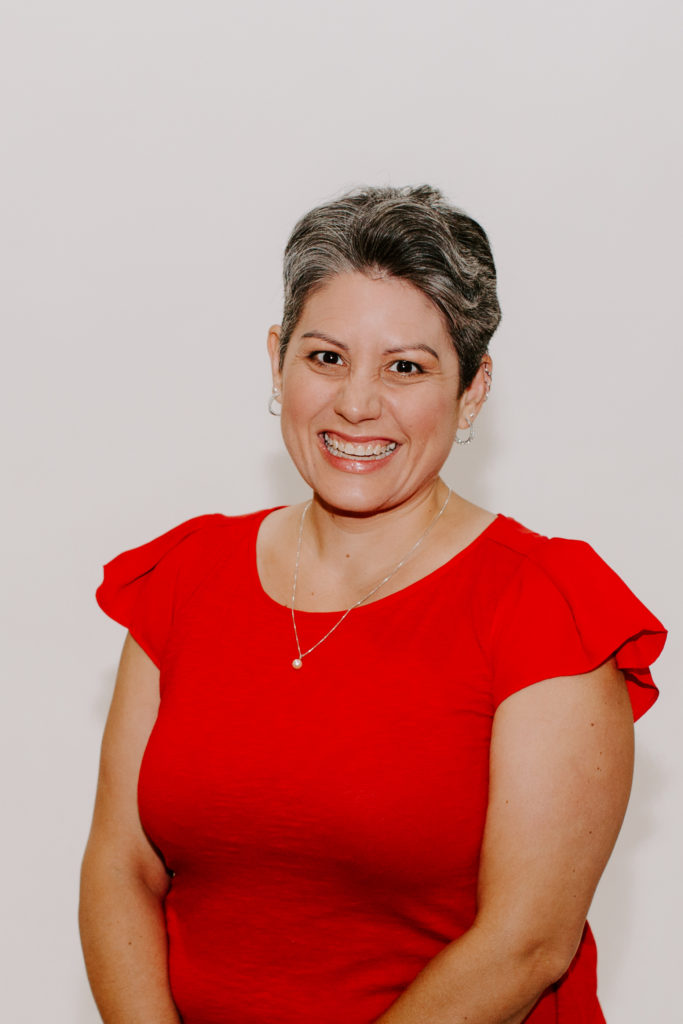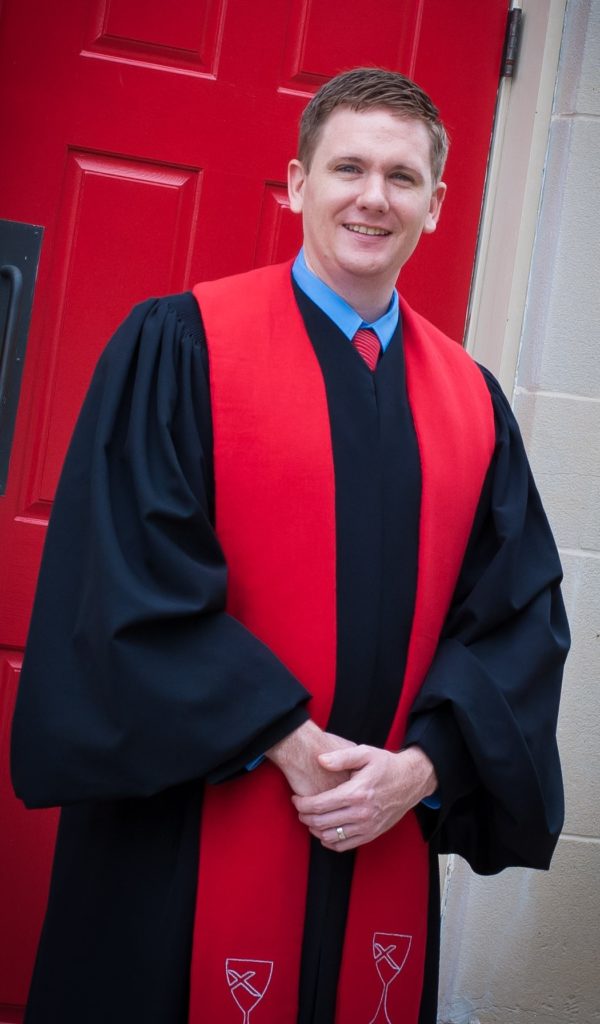Diana Hodges-Batzka
 HELM’s Leadership Fellows Program (LFP) is a leadership training initiative for undergraduate students, seeking to cultivate and strengthen participants’ potential for leadership through intentional focus on Christian community, societal transformation, global awareness, and leadership engagement. This month we are highlighting former LFP participant Diana Hodges-Batzka to learn how participating in the program impacted her life and calling.
HELM’s Leadership Fellows Program (LFP) is a leadership training initiative for undergraduate students, seeking to cultivate and strengthen participants’ potential for leadership through intentional focus on Christian community, societal transformation, global awareness, and leadership engagement. This month we are highlighting former LFP participant Diana Hodges-Batzka to learn how participating in the program impacted her life and calling.
On her current work:
I currently serve as the Associate Minister at Florence Christian Church in Florence, Kentucky. I lead faith formation ministries for all ages and provide the pastoral supervision for the Discover Zone Preschool and Childcare Center, IT & Communications Ministries, and our Scout Troops and Pack. In my spare time, I am working towards a Doctor of Ministry at Candler School of Theology at Emory University.
On memories from participating:
I remember the unconditional support and encouragement of the HELM staff as well as other fellows. We were all trying to figure out how God was working in our lives. Having a group of people also committed to their faith and to the church journeying with you in the time of discovery was so formational.
On important learnings:
Through the Leadership Fellows Program, I was able to get a broader sense of the church beyond local congregations as well as understand how deeply we are all connected. Meeting young leaders from across the country and with a wide variety of experiences helped me see that the ministry of the church is bigger and filled with more possibilities than I could ever dream. It also enabled me to see that there was a place for my own leadership gifts and strengths, which helped open me up to a call into ordained ministry during my participating in the LFP. I believe that I would have eventually listened for God’s call and said, “Yes.” However, I know that my experiences with the Leadership Fellows helped me be ready to receive that call sooner in my journey.
On how participating shaped her sense of calling and understanding of leadership:
By being in the Leadership Fellows Program, I learned that people can and are leaders at any age. In turn, it has helped me be attentive to others and encourage them in finding their calling and leadership abilities.
Beau Underwood
 The Disciples Leadership Institute (DLI) brings together emerging Disciples leaders (clergy and lay), seeking to deepen their understanding and develop their relationships across perceived boundaries of race, culture, and language. This month we highlight past participant Beau Underwood as he shares how his experience in the DLI program continues to shape his understanding of life and ministry.
The Disciples Leadership Institute (DLI) brings together emerging Disciples leaders (clergy and lay), seeking to deepen their understanding and develop their relationships across perceived boundaries of race, culture, and language. This month we highlight past participant Beau Underwood as he shares how his experience in the DLI program continues to shape his understanding of life and ministry.
On his current work:
Since early 2015, I’ve had the joy of serving as the Senior Minister of First Christian Church (Disciples of Christ) in Jefferson City, Missouri. The church is located two blocks from the State Capitol. Many of my members work in government or politics so shepherding this community connects very practically with my interests in how faith and politics intersect. Beyond my local congregation, I have the privilege of being a trustee of my undergraduate alma mater, Eureka College, and a member of the General Board of the Christian Church (Disciples of Christ).
On memories from participating:
DLI was an amazing experience for me. I made connections with leaders from across the denomination that have carried through to this day. Our gathering was in Salt Lake City, Utah. My strongest memories are of walking around downtown and talking about life’s biggest questions with folks I had just met. Those sort of instant relationships are so rare and DLI was an embarrassment of riches in that respect.
On important learnings:
This will sound obvious but the greatest gain for me from the DLI experience was encountering people and perspectives far different from my own. As the program intended, our cohort gathered a diverse group that was united not by ideological or theological agreement but through our common confession of Jesus Christ as Lord and a trust built around the shared experience of the communion table. This gift of unity, despite the lack of uniformity, allowed us to share our stories and convictions, be challenged by others in ways that led to spiritual growth, and gain an appreciation of the unique ways each of us carries the Image of God.
On how participating shaped her sense of calling and understanding of leadership:
Our cultural struggles with the ability to listen and empathize. We lack the imagination to consider the perspectives and experiences of others that are radically different – and perhaps even in conflict – with our own. Leaders, especially those in ministry, cannot afford to lack this skill set; it is necessary given the changing religious dynamics of society and its increasing pluralism. DLI nurtures these critical abilities and demands participants begin to practice them.
